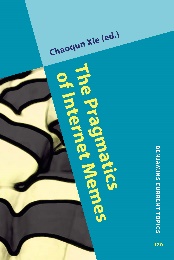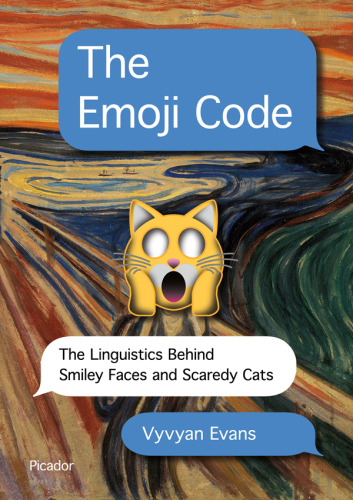2269 阅读 140 下载 2022-06-03 21:28:05 上传 13.02 MB
The Pragmatics of Internet Memes等2则书讯
今日推出2则书讯:
①2022年团购专著The Pragmatics of Internet Memes
欲获取更多关于此书的资讯,请添加“语言学小电”的微信13764179404进行咨询!
②2017年前沿专著The Emoji code: the linguistics behind smiley faces and scaredy cats
封面 | 概况 | 书讯类型 |
|
【书名】:The Pragmatics of Internet Memes 【作者】:Chaoqun Xie (ed.) 【年份】:2022年 【简介】:【团购资源】网络语用学新作 A huge amount of communication is nowadays carried out on the internet, as is reflected in online social networking sites, instant messaging interactions and the emergence of norms of production and interpretation in online communities as regards the discursive construction of digital selves, digital communicative action and digital codes of interaction, among other interfaces for virtual interaction. Internet Pragmatics was launched as a response to the emerging challenges of applying pragmatic perspectives to internet or technologically mediated interaction. The journal provides a unique, fully peer-reviewed forum dedicated to cutting-edge research into internet pragmatics, examining how people use the internet and social media to fulfill their communicative needs, and how those virtual interactions entail pragmatic implications on human relationships, identities and social or professional collectivities. It also seeks to explore and expound how online communication is both similar to and different from offline interaction, how the online world and the offline world are both distinct and inseparable but also intertwined in a number of ways, and how online or digital identities impact on people’s language use in offline interaction and vise versa. Internet Pragmatics promotes interdisciplinary dialogue and interface studies between pragmatics and other fields including but not limited to sociology, media studies, digital communication, discourse analysis, cognitive science, anthropology, psychology, philosophy and even neuroscience. The journal intends to contribute to a better and deeper understanding of language use and interaction in cyberspace and of human beings in and across mediated contexts. | 此书讯“语言学小电”提供,感兴趣可添加“语言学小电”的微信13764179404进行咨询! |
| 【书名】:The Emoji code: the linguistics behind smiley faces and scaredy cats 【作者】:Evans, Vyvyan 【年份】:2017年 【简介】:For all the handwringing about the imminent death of written language, emoji―those happy faces and hearts―is not taking us backward to the dark ages of illiteracy. Every day 41.5 billion texts are sent by one quarter of the world, using 6 million emoji. Evans argues that these symbols enrich our ability to communicate and allow us to express our emotions and induce empathy―ultimately making us all better communicators.
Vyvyan Evans's Emoji Code charts the evolutionary origins of language, the social and cultural factors that govern its use, change, and development; as well as what it reveals about the human mind. In most communication, nonverbal cues are our emotional expression, signal our personality, and are our attitude toward our addressee. They provide the essential means of nuance and are essential to getting our ideas across. But in digital communication, these cues are missing, which can lead to miscommunication. The explosion of emoji, in less than four years, has arisen precisely because it fulfills exactly these functions which are essential for communication but are otherwise absent in texts and emails. Evans persuasively argues that emoji add tone and an emotional voice and nuance, making us more effective communicators in the digital age. | 此资源由网友提供 |
















